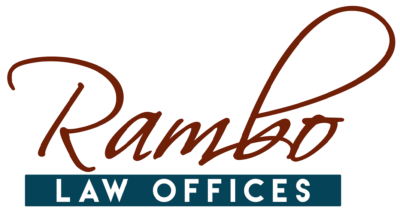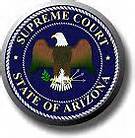The 7 Most Common Bankruptcy Mistakes
Request your free copy now!!
If you're facing foreclosure...
If you're delinquent on your mortgage payments you need to explore your options as soon as possible.
First, contact your mortgage holder(s) and ask if they have any programs to help you.
If that doesn't help, then consider renting the property.
If that doesn't help, then consider selling the property. You first need to determine whether or not you have any equity in the property. Find out the accurate value of the property by talking to a realtor. Deduct the costs of repairs and the costs of selling your home (closing costs and realtor fees) from the value, to determine the net value. Then determine the amount of total debt you have against the property, and subtract that from the net value. If it's a positive number then you have equity and are in a position to sell the property by standard methods.
If there is no equity and you can't sell the house for what you owe against it, and you can't bring the loan current, then you have to either accept the foreclosure, or talk to the lender about doing a short sale or a Deed in Lieu of Foreclosure.
A short sale is selling the property for less than what is owed on the loan, which requires lender permission. A Deed in Lieu of Foreclosure is signing the deed over to the lender and voluntarily surrendering the property, which also requires lender approval.
You need to be extremely careful about either of these options because the documents you sign might commit you to being held liable for any deficiency balance on the loan. That's usually NOT a good idea since you likely won't be liable for a deficiency if the lender forecloses, pursuant to anti-deficiency laws, and you definitely won't be liable for it if you file bankruptcy.
Filing bankruptcy will automatically stay (stop) the foreclosure process. But it's only a temporary fix if you file Chapter 7, as you will need to bring the payments current within one to three months or the court will still allow the foreclosure. Chapter 13 is usually a better option in that it helps you reorganize the debt and you'll have three to five years to pay off the mortgage delinquency. However, you will still have to maintain the ongoing regular monthly payment in addition to making payments toward the delinquency, so if you can't afford the regular payment then you probably can't afford to keep the property. But if you can afford the payments then Chapter 13 is a great tool for you, especially if you qualify for stripping off a second mortgage.
The Foreclosure Process...
1. The lender records a Notice of Trustee's Sale with the County Recorder’s office.
2. The property owner receives a copy of the notice sale via certified mail. The notice is also posted on the front door and published in a paper.
3. The property owner still owns the house until the sale is completed. Note that you are still responsible for HOA dues until the title has transferred after the sale. You can rent the property and keep the money if you'd like. You can remove items that belong to you but do not remove items that are fixed to the walls or will cause damage to the property.
4. The sale date will be at least 90 days from the date that the notice of sale is recorded.
5. It is not uncommon for the lender to postpone the sale to a date later than the original schedule sale date, and no notice is required. Do not trust that the lender will postpone even if they are in the process of working with you on a loan modification or short sale. The sale often happens anyway.
6. Once the sale occurs the title conveys to the new owner - either a third party or your lender. A trustee’s deed will be recorded with the county recorder’s office. This deed transfers title to the new owner. This is the time when you're no longer liable for the HOA dues and can stop making the payments. It is theft to remove any items from the house after title conveys to the new owner so you should refrain from that.
7. You will likely receive a 5-day notice to vacate. If you fail to vacate then the new owner can file an eviction action, called a Forcible Entry and Detainer.
8. There will be a hearing within 10-12 days. The court will enter an order for you to vacate the house within 5 business days after the court hearing.
9. It is sometimes possible to negotiate cash-for-keys, meaning, the lender will give you some cash to voluntarily vacate, which is pretty nifty!
10. Continue to pay the homeowners dues until the house changes title (a trustee’s deed is signed).
For those who are legally curious, read on....
Most people think that a security agreement against a property is called a "mortgage." However, there are actually two types of security agreements taken by lenders in Arizona: 1) mortgage, and 2) deed of trust. Most security agreements taken by lenders in Arizona are deeds of trust.
CHOICES, CHOICES: SUE OR FORECLOSURE?
By: Stephanie Monroe Wilson. An Arizona attorney, Stoops Denious & Wilson, PLC, as published in the Arizona Journal of Real Estate & Business, October 2001.
A question many lenders face is what to do when a borrower defaults on a promissory note. Depending on whether the loan is a mortgage or a deed of trust will affect the decision the lender makes, but the main question the lender needs to ask is whether it would be more beneficial to foreclose on the property, taking the property back with a deed in lieu, or sue on the promissory note. Many lenders automatically think they should foreclose, however, in certain circumstances, suing on the note may be the better remedy. This article focuses on some of the advantages and disadvantages of suing on the note instead of foreclosing.
Mortgages and Deeds of Trust. Perhaps the oldest form for securing real property is the mortgage. A mortgage is not common in Arizona, because a deed of trust is a better security interest for the lender. A mortgage is a two-party instrument that is basically a pledge of real property given by a borrower (a mortgager) to a lender (a mortgagee) to secure the payment of a debt. On the other hand, a deed of trust is a three-party instrument in which the borrower (trustor) conveys legal title to the property to the trustee. The trustee holds legal title to the property on behalf of the lender (beneficiary). The beneficiary’s remedies under the deed of trust include those available to the mortgagee under a mortgage but also give the lender a non-judicial private power of sale (better known as a trustees sale) not available with mortgages. Except for certain “purchase money” residential loans (which are explained below), if a borrower defaults under either a mortgage or a deed of trust, the lender (mortgagee or beneficiary) may foreclose upon the property or sue on the note.
Foreclosure Remedies. When a borrower defaults under a mortgage, the mortgagee may enforce either the security by judicial foreclosure (in which case the security is sold by court order), or the mortgagee may elect to sue directly on the original indebtedness that is secured by the mortgage. In Arizona, a mortgagee cannot simultaneously maintain a judicial foreclosure and a separate lawsuit on the debt. This rule is set forth in A.R.S. § 33-722 that allows the mortgagee to either sue directly on the debt (thereby waiving the mortgage) or judicially foreclose the mortgage.
A beneficiary under a deed of trust has two options to foreclose: the lender may foreclose on the property by a judicial sale just as a mortgagee cam or the lender may foreclose by a non-judicial trustees sale (which is by far the most common method of foreclosure in Arizona). Further, in contrast to a mortgagee, a beneficiary also has the right to simultaneously pursue a trustee’s sale and sue directly on the original note. As noted earlier, A.R.S.§ 33-722 clearly prohibits a lender from simultaneously maintaining a lawsuit on the note and a judicial foreclosure. But the election of a remedy statute (A.R.S.§ 33-722) is contained only in the mortgage statutes and no similar ‘election of remedy” statute appears in the chapter governing deeds of trust. The question then becomes which remedy is best suited for the lender.
Pursuing the Debt and Deficiencies. When choosing a remedy to pursue, a lender must consider whether its debt is sufficiently covered by the collateral And if not, the lender must then consider whether the debt is collectible against the borrower, including whether or not a potential deficiency judgment can be obtained and collected if the lender chooses to foreclose instead of suing on the note.
If the proceeds of the foreclosure sale of the property secured by a mortgage or by a deed of trust are insufficient to pay the full loan balance, the mortgagee or the beneficiary may be entitled to a judgment against the debtor known as a ‘deficiency.’ Under Arizona law, a deficiency is equal to the amount of the debt minus the greater of the bid at the foreclosure sale or the fair market value of the property. A deficiency judgment is authorized under A.R.S. § 33-725 (mortgages) and A.R.S. § 33-814 (deeds of trust).
However, in 1971 the Arizona Legislature enacted two anti-deficiency statutes barring the right of certain beneficiaries and certain “purchase money” mortgagees from seeking a deficiency judgment for certain types of residential loans. These anti-deficiencies statutes apply when the security does not exceed 2.5 acres and is utilized as and limited to either a single one-family or single two-family dwelling. The result of the anti-deficiency statutes is that a lender who is foreclosing on a single one-family or two-family residence on less than 2.5 acres may receive less than the debt but still not be able to collect the difference, whereas a lender who instead sues on the note could potentially obtain a judgment for the full amount of the debt owed. If the lender is significantly under-secured and believes the debtor has sufficient assets to enable the lender to collect on a judgment, the lender may want to waive the security and sue directly on the note, as long as the law allows such action (as explained below).
The anti-deficiency statute for mortgages applies only to “purchase money” mortgages, Accordingly, if a mortgage is not “purchase money”, the mortgagee can seek a deficiency and may be better suited to foreclose since the lender can obtain a deficiency after the foreclosure is completed.
The deed of trust anti-deficiency statute, however, applies to all such residential deeds of trust, not just to ‘purchase money” deeds of trust. Thus, for the vast majority of residential properties secured by a deed of trust, the lender cannot seek a deficiency if it performed a trustee’s sale, but can seek a deficiency if it performed a judicial foreclosure (although the judicial method is a long and expensive process). In light of this anti-deficiency statute, a deed of trust lender is often wise to sue directly on the note if the property lacks sufficient equity, whereas a mortgagee would usually choose to judicially foreclose and pursue a deficiency instead of suing on the note.
Neither of these statutes expressly prohibits a lender from electing to waive the security of the mortgage or the deed of trust and sue the homeowner directly on the debt. However, in a landmark decision entitled Baker v. Gardner, decided in 1988, the Arizona Supreme Court held that Arizona’s anti-deficiency statutes prohibit a secured lender from suing a homeowner who borrowed money on those types of loans protected by the anti-deficiency statutes. The court stated the allowance of a lawsuit on the promissory note is such instances would circumvent the legislature’s objective in enacting the anti-deficiency statutes. The end result of Baker is that a lender who takes a mortgage or deed of trust to secure all or part of the purchase price of the home may only foreclose. Therefore, if the residential loan is a “purchase money” mortgage or deed of trust, the lender must foreclose, either by judicial foreclosure (mortgage or deed of trust) or sale (deed of trust only). In other words, for such residential properties, the only time a lender can sue directly on the note is if the loan is not “purchase money”, such as a home equity loan. In the case of non-purchase money loans, the lender may consider the option of suing on the note.
If you're facing foreclosure...
If you're delinquent on your mortgage payments you need to explore your options as soon as possible.
First, contact your mortgage holder(s) and ask if they have any programs to help you.
If that doesn't help, then consider renting the property.
If that doesn't help, then consider selling the property. You first need to determine whether or not you have any equity in the property. Find out the accurate value of the property by talking to a realtor. Deduct the costs of repairs and the costs of selling your home (closing costs and realtor fees) from the value, to determine the net value. Then determine the amount of total debt you have against the property, and subtract that from the net value. If it's a positive number then you have equity and are in a position to sell the property by standard methods.
If there is no equity and you can't sell the house for what you owe against it, and you can't bring the loan current, then you have to either accept the foreclosure, or talk to the lender about doing a short sale or a Deed in Lieu of Foreclosure.
A short sale is selling the property for less than what is owed on the loan, which requires lender permission. A Deed in Lieu of Foreclosure is signing the deed over to the lender and voluntarily surrendering the property, which also requires lender approval.
You need to be extremely careful about either of these options because the documents you sign might commit you to being held liable for any deficiency balance on the loan. That's usually NOT a good idea since you likely won't be liable for a deficiency if the lender forecloses, pursuant to anti-deficiency laws, and you definitely won't be liable for it if you file bankruptcy.
Filing bankruptcy will automatically stay (stop) the foreclosure process. But it's only a temporary fix if you file Chapter 7, as you will need to bring the payments current within one to three months or the court will still allow the foreclosure. Chapter 13 is usually a better option in that it helps you reorganize the debt and you'll have three to five years to pay off the mortgage delinquency. However, you will still have to maintain the ongoing regular monthly payment in addition to making payments toward the delinquency, so if you can't afford the regular payment then you probably can't afford to keep the property. But if you can afford the payments then Chapter 13 is a great tool for you, especially if you qualify for stripping off a second mortgage.
The Foreclosure Process...
1. The lender records a Notice of Trustee's Sale with the County Recorder’s office.
2. The property owner receives a copy of the notice of sale via certified mail. The notice is also posted on the front door and published in a paper.
3. The property owner still owns the house until the sale is completed. Note that you are still responsible for HOA dues until the title has transferred after the sale. You can rent the property and keep the money if you'd like. You can remove items that belong to you but do not remove items that are fixed to the walls or will cause damage to the property.
4. The sale date will be at least 90 days from the date that the notice of sale is recorded.
5. It is not uncommon for the lender to postpone the sale to a date later than the original schedule sale date, and no notice is required. Do not trust that the lender will postpone even if they are in the process of working with you on a loan modification or short sale. The sale often happens anyway.
6. Once the sale occurs the title conveys to the new owner - either a third party or your lender. A trustee’s deed will be recorded with the county recorder’s office. This deed transfers title to the new owner. This is the time when you're no longer liable for the HOA dues and can stop making the payments. It is theft to remove any items from the house after title conveys to the new owner so you should refrain from that.
7. You will likely receive a 5-day notice to vacate. If you fail to vacate then the new owner can file an eviction action, called a Forcible Entry and Detainer.
8. There will be a hearing within 10-12 days. The court will enter an order for you to vacate the house within 5 business days after the court hearing.
9. It is sometimes possible to negotiate cash-for-keys, meaning, the lender will give you some cash to voluntarily vacate, which is pretty nifty!
10. Continue to pay the homeowners dues until the house changes title (a trustee’s deed is signed).
For those who are legally curious, read on....
Most people think that a security agreement against a property is called a "mortgage." However, there are actually two types of security agreements taken by lenders in Arizona: 1) mortgage, and 2) deed of trust. Most security agreements taken by lenders in Arizona are deeds of trust.
CHOICES, CHOICES: SUE OR FORECLOSURE?
By: Stephanie Monroe Wilson. An Arizona attorney, Stoops Denious & Wilson, PLC, as published in the Arizona Journal of Real Estate & Business, October 2001.
A question many lenders face is what to do when a borrower defaults on a promissory note. Depending on whether the loan is a mortgage or a deed of trust will affect the decision the lender makes, but the main question the lender needs to ask is whether it would be more beneficial to foreclose on the property, taking the property back with a deed in lieu, or sue on the promissory note. Many lenders automatically think they should foreclose, however, in certain circumstances, suing on the note may be the better remedy. This article focuses on some of the advantages and disadvantages of suing on the note instead of foreclosing.
Mortgages and Deeds of Trust. Perhaps the oldest form for securing real property is the mortgage. A mortgage is not common in Arizona, because a deed of trust is a better security interest for the lender. A mortgage is a two-party instrument that is basically a pledge of real property given by a borrower (a mortgager) to a lender (a mortgagee) to secure the payment of a debt. On the other hand, a deed of trust is a three-party instrument in which the borrower (trustor) conveys legal title to the property to the trustee. The trustee holds legal title to the property on behalf of the lender (beneficiary). The beneficiary’s remedies under the deed of trust include those available to the mortgagee under a mortgage but also give the lender a non-judicial private power of sale (better known as a trustees sale) not available with mortgages. Except for certain “purchase money” residential loans (which are explained below), if a borrower defaults under either a mortgage or a deed of trust, the lender (mortgagee or beneficiary) may foreclose upon the property or sue on the note.
Foreclosure Remedies. When a borrower defaults under a mortgage, the mortgagee may enforce either the security by judicial foreclosure (in which case the security is sold by court order), or the mortgagee may elect to sue directly on the original indebtedness that is secured by the mortgage. In Arizona, a mortgagee cannot simultaneously maintain a judicial foreclosure and a separate lawsuit on the debt. This rule is set forth in A.R.S. § 33-722 that allows the mortgagee to either sue directly on the debt (thereby waiving the mortgage) or judicially foreclose the mortgage.
A beneficiary under a deed of trust has two options to foreclose: the lender may foreclose on the property by a judicial sale just as a mortgagee cam or the lender may foreclose by a non-judicial trustees sale (which is by far the most common method of foreclosure in Arizona). Further, in contrast to a mortgagee, a beneficiary also has the right to simultaneously pursue a trustee’s sale and sue directly on the original note. As noted earlier, A.R.S.§ 33-722 clearly prohibits a lender from simultaneously maintaining a lawsuit on the note and a judicial foreclosure. But the election of a remedy statute (A.R.S.§ 33-722) is contained only in the mortgage statutes and no similar ‘election of remedy” statute appears in the chapter governing deeds of trust. The question then becomes which remedy is best suited for the lender.
Pursuing the Debt and Deficiencies. When choosing a remedy to pursue, a lender must consider whether its debt is sufficiently covered by the collateral And if not, the lender must then consider whether the debt is collectible against the borrower, including whether or not a potential deficiency judgment can be obtained and collected if the lender chooses to foreclose instead of suing on the note.
If the proceeds of the foreclosure sale of the property secured by a mortgage or by a deed of trust are insufficient to pay the full loan balance, the mortgagee or the beneficiary may be entitled to a judgment against the debtor known as a ‘deficiency.’ Under Arizona law, a deficiency is equal to the amount of the debt minus the greater of the bid at the foreclosure sale or the fair market value of the property. A deficiency judgment is authorized under A.R.S. § 33-725 (mortgages) and A.R.S. § 33-814 (deeds of trust).
However, in 1971 the Arizona Legislature enacted two anti-deficiency statutes barring the right of certain beneficiaries and certain “purchase money” mortgagees from seeking a deficiency judgment for certain types of residential loans. These anti-deficiencies statutes apply when the security does not exceed 2.5 acres and is utilized as and limited to either a single one-family or single two-family dwelling. The result of the anti-deficiency statutes is that a lender who is foreclosing on a single one-family or two-family residence on less than 2.5 acres may receive less than the debt but still not be able to collect the difference, whereas a lender who instead sues on the note could potentially obtain a judgment for the full amount of the debt owed. If the lender is significantly under-secured and believes the debtor has sufficient assets to enable the lender to collect on a judgment, the lender may want to waive the security and sue directly on the note, as long as the law allows such action (as explained below).
The anti-deficiency statute for mortgages applies only to “purchase money” mortgages, Accordingly, if a mortgage is not “purchase money”, the mortgagee can seek a deficiency and may be better suited to foreclose since the lender can obtain a deficiency after the foreclosure is completed.
The deed of trust anti-deficiency statute, however, applies to all such residential deeds of trust, not just to ‘purchase money” deeds of trust. Thus, for the vast majority of residential properties secured by a deed of trust, the lender cannot seek a deficiency if it performed a trustee’s sale, but can seek a deficiency if it performed a judicial foreclosure (although the judicial method is a long and expensive process). In light of this anti-deficiency statute, a deed of trust lender is often wise to sue directly on the note if the property lacks sufficient equity, whereas a mortgagee would usually choose to judicially foreclose and pursue a deficiency instead of suing on the note.
Neither of these statutes expressly prohibits a lender from electing to waive the security of the mortgage or the deed of trust and sue the homeowner directly on the debt. However, in a landmark decision entitled Baker v. Gardner, decided in 1988, the Arizona Supreme Court held that Arizona’s anti-deficiency statutes prohibit a secured lender from suing a homeowner who borrowed money on those types of loans protected by the anti-deficiency statutes. The court stated the allowance of a lawsuit on the promissory note is such instances would circumvent the legislature’s objective in enacting the anti-deficiency statutes. The end result of Baker is that a lender who takes a mortgage or deed of trust to secure all or part of the purchase price of the home may only foreclose. Therefore, if the residential loan is a “purchase money” mortgage or deed of trust, the lender must foreclose, either by judicial foreclosure (mortgage or deed of trust) or sale (deed of trust only). In other words, for such residential properties, the only time a lender can sue directly on the note is if the loan is not “purchase money”, such as a home equity loan. In the case of non-purchase money loans, the lender may consider the option of suing on the note.
We are Proud to be a Designated Debt Relief Agency under Federal Law and We Provide Legal Assistance to Consumers Seeking Relief Under the Bankruptcy Code.
The information contained herein is for informational purposes only. It is not intended to constitute legal advice or to create an attorney-client relationship. We do not make any recommendations or endorsement as to any legal issue or procedure discussed. The nature of any particular legal issue should be considered on a case-by-case basis, and the information described herein is not necessarily a guide to your individual circumstances. It is advised that you seek independent legal advice to determine your particular legal needs.
Copyright © 2003 by Rambo Law Offices







